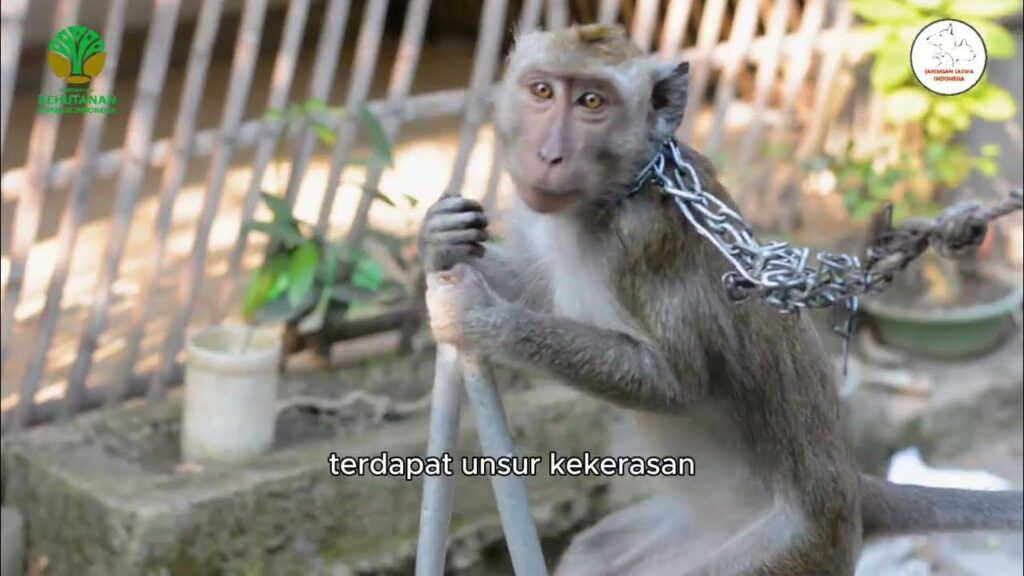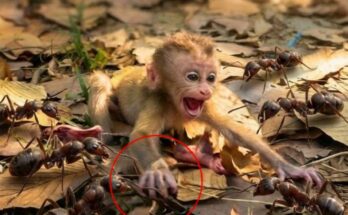
Living conditions are equally heartbreaking. When not performing, many Topeng Monyet monkeys are locked in cramped cages, deprived of proper food, exercise, or social interaction with their own kind. Their natural instincts—to climb trees, forage, and play in groups—are suppressed, replaced by unnatural routines dictated by human handlers.
The masks themselves, which give the practice its name, add another layer of cruelty. The tight, heavy coverings are uncomfortable and frightening for the animals. Stripped of their individuality and dignity, the monkeys become little more than puppets in a disturbing street show.
Animal welfare organizations in Indonesia and abroad have long campaigned against the practice. They argue that not only does it harm the monkeys physically and psychologically, but it also sends the wrong message to children and society. Instead of teaching compassion for animals, Topeng Monyet normalizes cruelty, turning suffering into entertainment.
Fortunately, change is slowly happening. In recent years, authorities in Jakarta and other cities have moved to ban Topeng Monyet shows, rescuing monkeys from exploitative handlers. Rehabilitation centers now work to give these animals a second chance at life—providing space, medical care, and the opportunity to reconnect with their natural behaviors. Though not all rescued monkeys can return to the wild, many find safety and dignity in sanctuaries.
The story behind Topeng Monyet serves as a powerful reminder: traditions must evolve when they cause harm. Culture is meant to celebrate life, not to exploit it. The sight of a monkey in chains, forced to wear a mask and perform for coins, is not entertainment—it is cruelty disguised as culture.
By raising awareness and supporting humane alternatives, society can move away from practices like Topeng Monyet. In doing so, we not only protect animals but also honor our own humanity, showing future generations that kindness and empathy are the true markers of culture and civilization.


